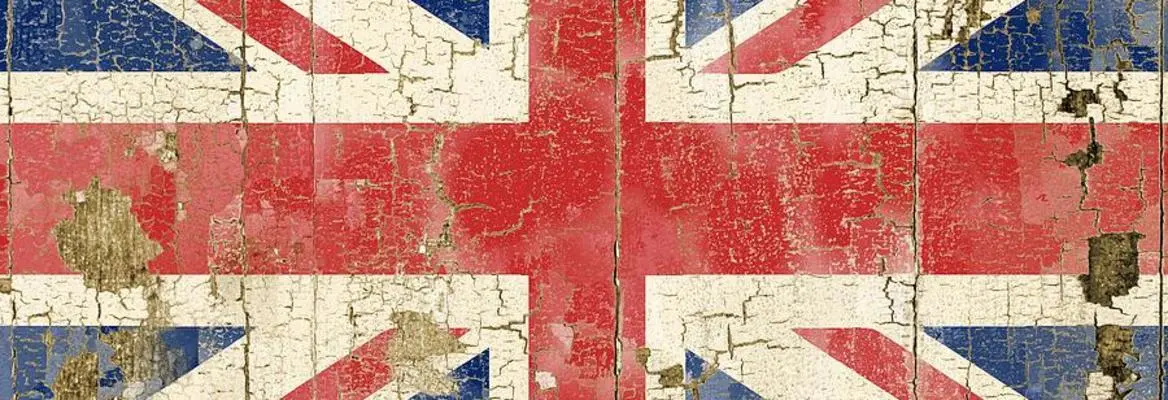Politics – translated from the Greek as “affairs of the city” – refers to the way power is exercised on behalf of the people. It is the competition for governance of a specific community, state or territory by political parties grounded within alternative traditions regarding how society should be organised. Yet progressive politics appears to be moving away from any notion of politics being anchored within specific ideas of community, state and territory. Increasingly these are considered reactionary, exclusive categories. It is true for both the liberal and the radical left. It might well account for why the left keeps losing elections.
This retreat is hardly ever discussed yet is arguably leading the country toward political disaster. Whilst much of the left has abandoned the currency of nation and solidarity in favour of a vague abstract global cosmos, almost everywhere the populist right appear to be on the march. The two developments are related.
…...
Nearly twenty years ago in February 1998, one of the founders of the social democratic ‘Third Way’ – the sociologist Ulrich Beck – provided us with the ‘Cosmopolitan Manifesto’. He proposed the basis for a new ‘world citizenship’ through an ‘ethical globalisation’ by focusing on two key stages in the emergence of this entrenched modernity. First, the legacy of freedom captured through various civil rights struggles. Second, through our dissolved attachments where ‘community, group and identity structure lose their ontological cement’. These values, expressed through the emergence of ‘cosmopolitan parties’, have been replaced by a radical individualism and strengthened democracy, especially amongst the well educated and the young.
These parties, he thought, were best seen as political movements within and between nation states emerging to form ‘world parties’ in a threefold sense. First, their appeal – ‘liberty, diversity, toleration!’ – is to transcendent human values that appear in every culture and religion. Second, they prioritise global political action over that of the local or national. Third, in their attempts to democratise transnational regimes and regulators. Here the new base of the left is seen to be amongst the post national, urban, networked, educated, youth. Nearly twenty years to the day after Blair’s 1997 landslide and having witnessed the collapse of this political project, we might assume that these ideas belong to the past.
Appearances are deceptive not least because today Blair’s liberal left joins forces with the most fashionable radical thinking. As the ‘third way’ collapsed, those that self identify as being on the radical left have also pronounced the nation as dead – or at least as offering diminishing returns given intensifying globalisation. For example, in their widely celebrated work Empire, Hardt and Negri identified the declining significance of the sovereign nation given the amorphous power of capital whose modern rule suggested a declining relevance attached to questions of territory and country. What was emerging was empire without the significance of nation. For today’s left this has brought forward the political possibilities offered by a transnational multitude to condition and challenge global capital – a radical new form of political agency. The concerns of the radical left today have cohered with the sociologists of the New Labour era – of Giddens, Beck and Castells.
Followers of Negri – such as the popular writer and journalist Paul Mason – suggest now that the globally orientated networked youth are the new progressive agents, as the working class is being destroyed by automation and the nation state is increasingly insignificant. It precisely echoes the assertions of the social democrats in the mid 1990s.
These are big calls. Cosmopolitanism asserts a privileged global citizenship over other forms of society, attachment or fidelity. The question is whether today’s thinkers and activists will simply hand over to their opponents ownership of political categories such as home, community and nation. It raises obvious questions about building a more inclusive, radical approach to nation and community, and the consequences if this is to prove beyond our grasp.
……
These arguments are especially acute for politicians who seek a mandate from a specific piece of territory – a constituency or a nation. Prospective political leaders do not seek their mandate from a global electorate but one situated within particular geographical boundaries. The point is an obvious one: does the prospective political leader have a set of particular moral obligations to that particular electorate over and above an imagined global responsibility? It appears that much of the modern left are suggesting they do not. Indeed those politicians that have suggested just such an approach have been recently criticised for trying to ‘out UKIP UKIP’.
A New Nationalism
The left has lost its sense of community and identity. Do we need to reconnect with nationalism before its too late?

Continue reading
Enjoy unlimited access to the world's leading thinkers.
Start by exploring our subscription options or joining our mailing list today.
Already a subscriber? Log in
john brown 30 June 2017
Nationalisms are, for some, useful myths. When England became England ( when was that?) most English people never went more than a few miles from their homes, unless it was to fight in some battle, and so could not have any real sense of England; if they had travellled a bit further they would probably not have understood what other English people elsewhere said!
Nationalism and patriotism are tools that can be used to gain and wield power over others and to get expendable people to fight one´s battles.














Join the conversation